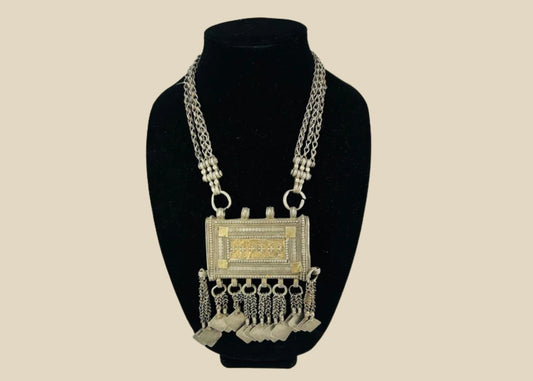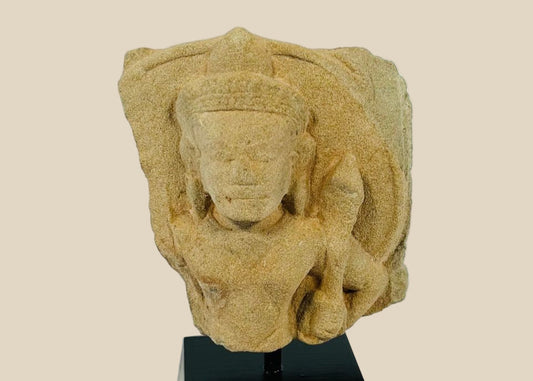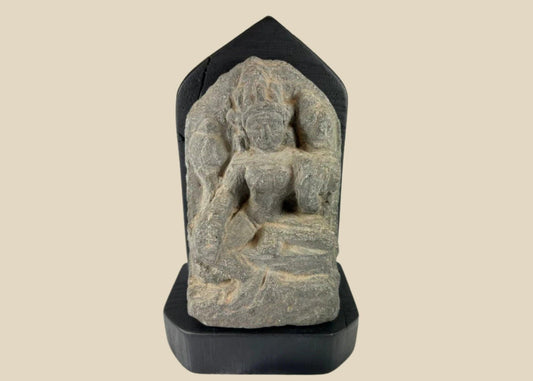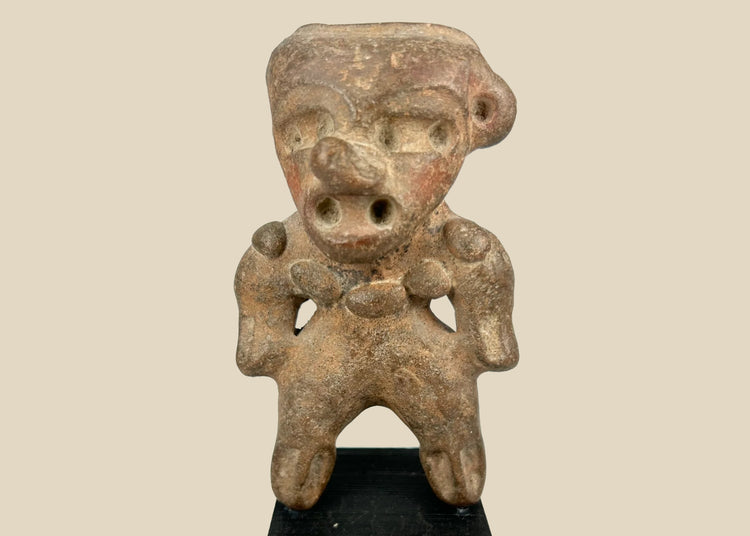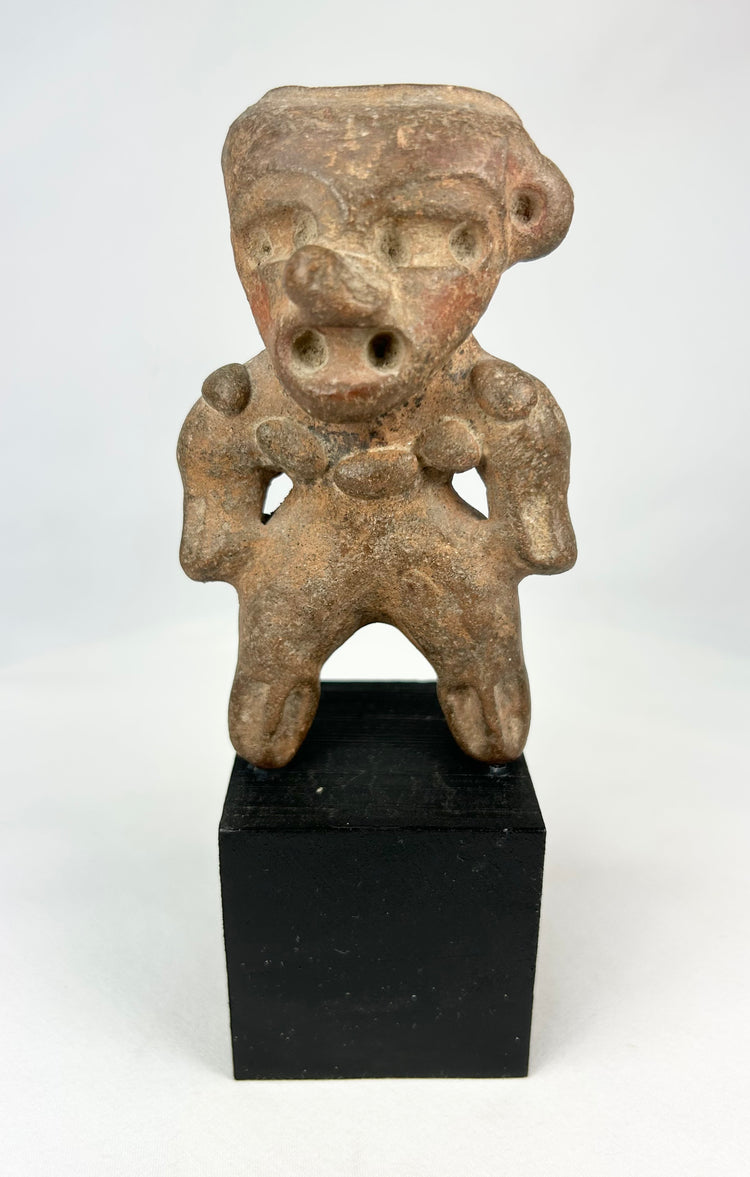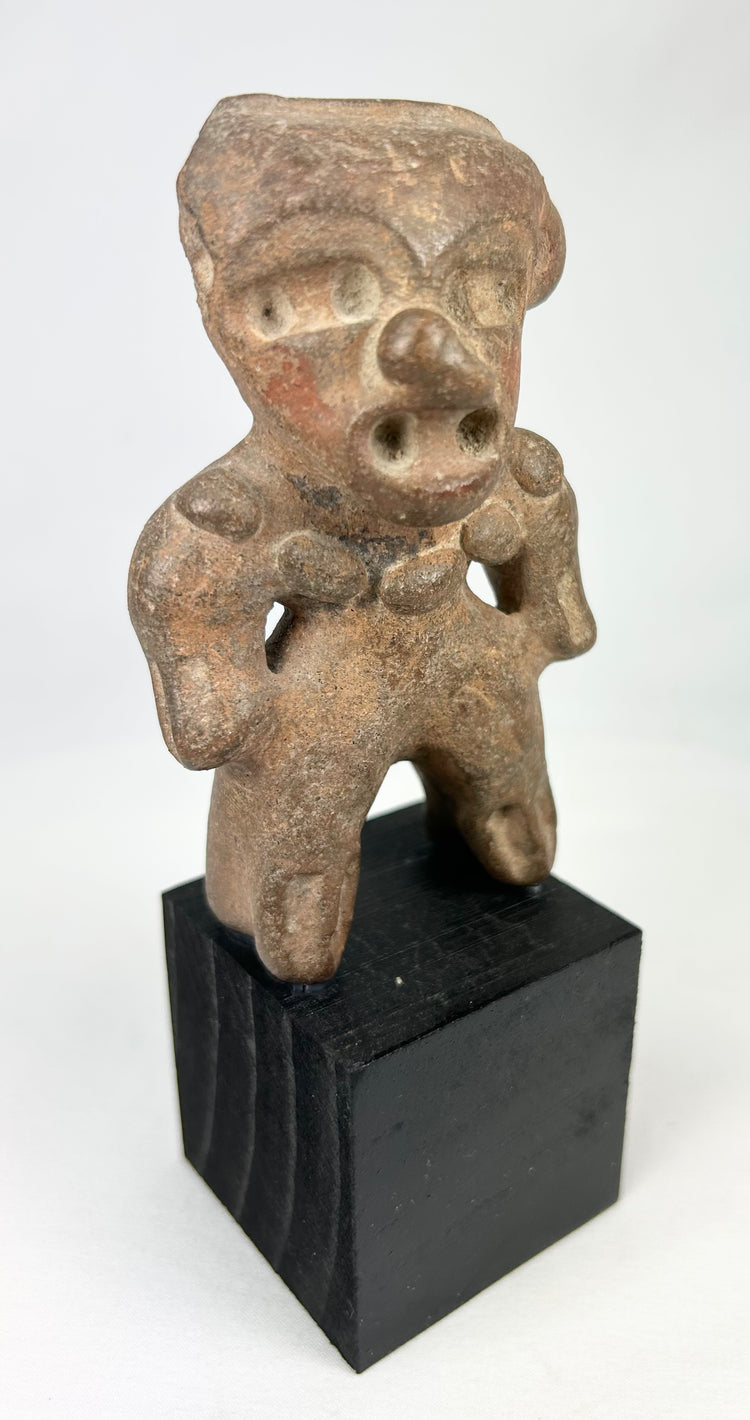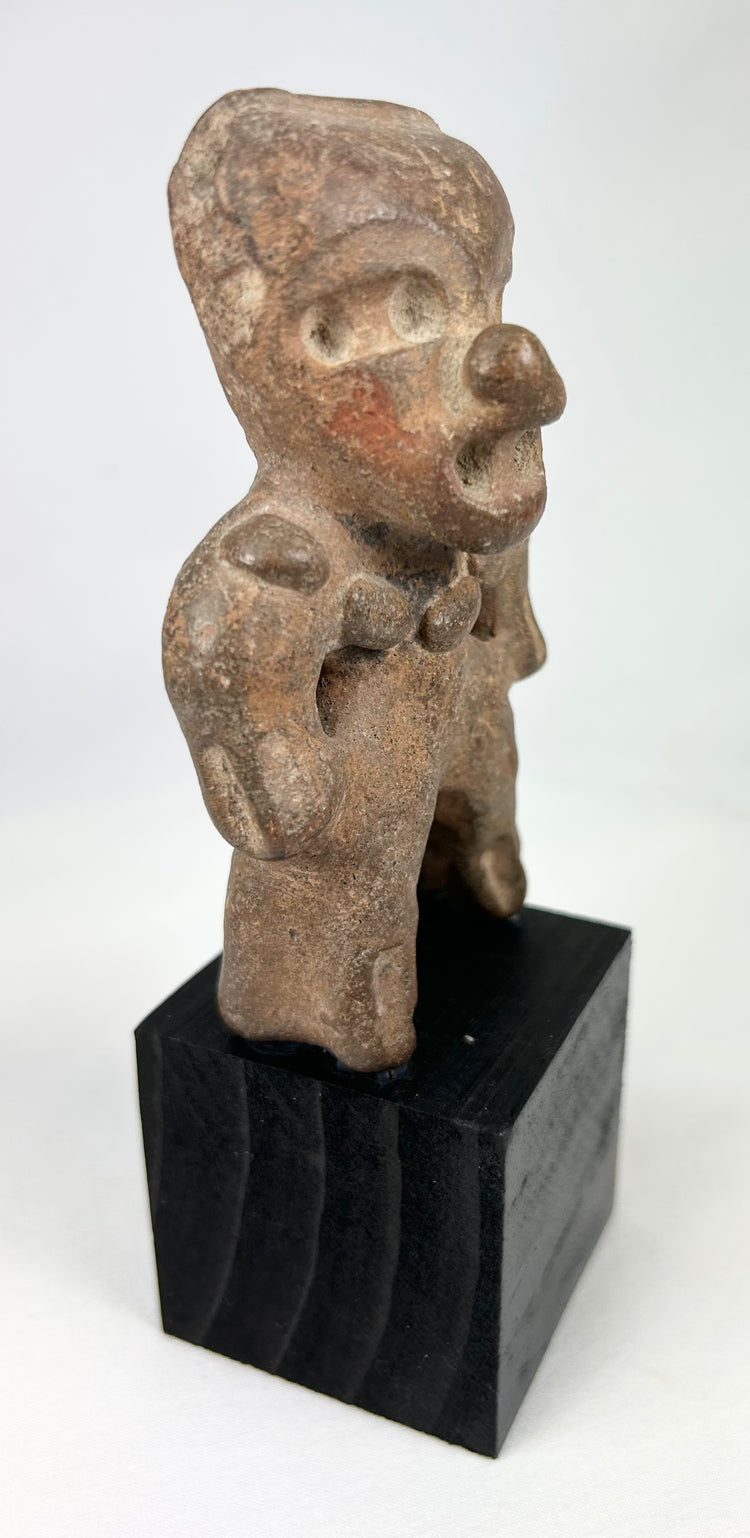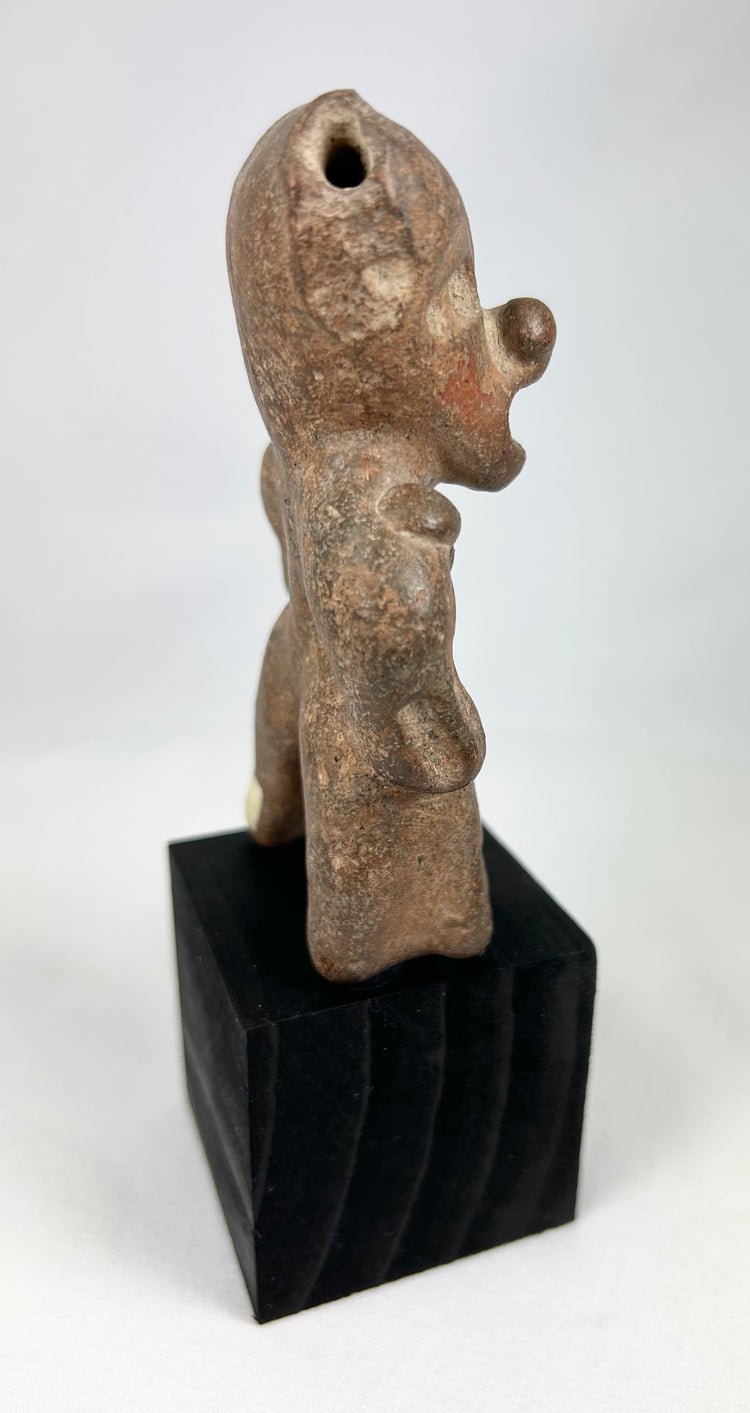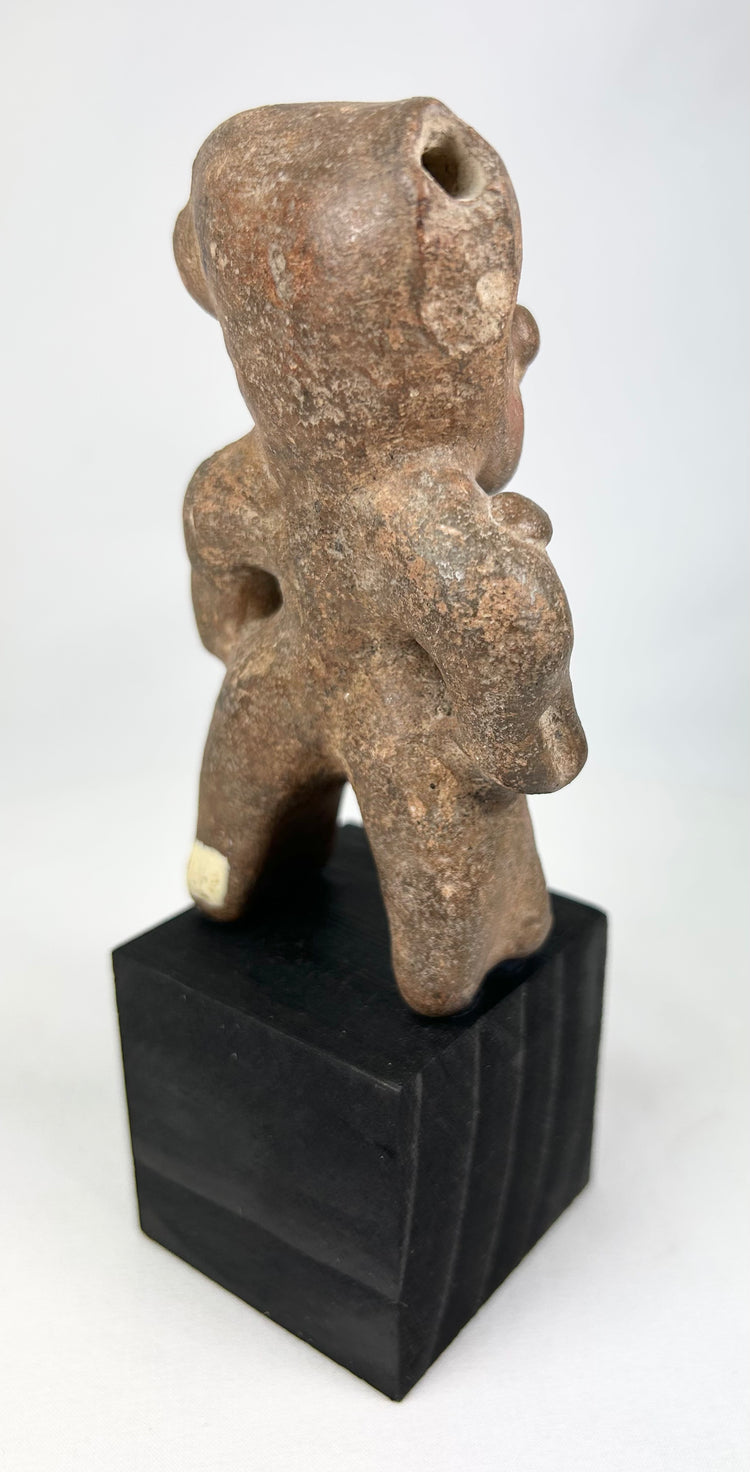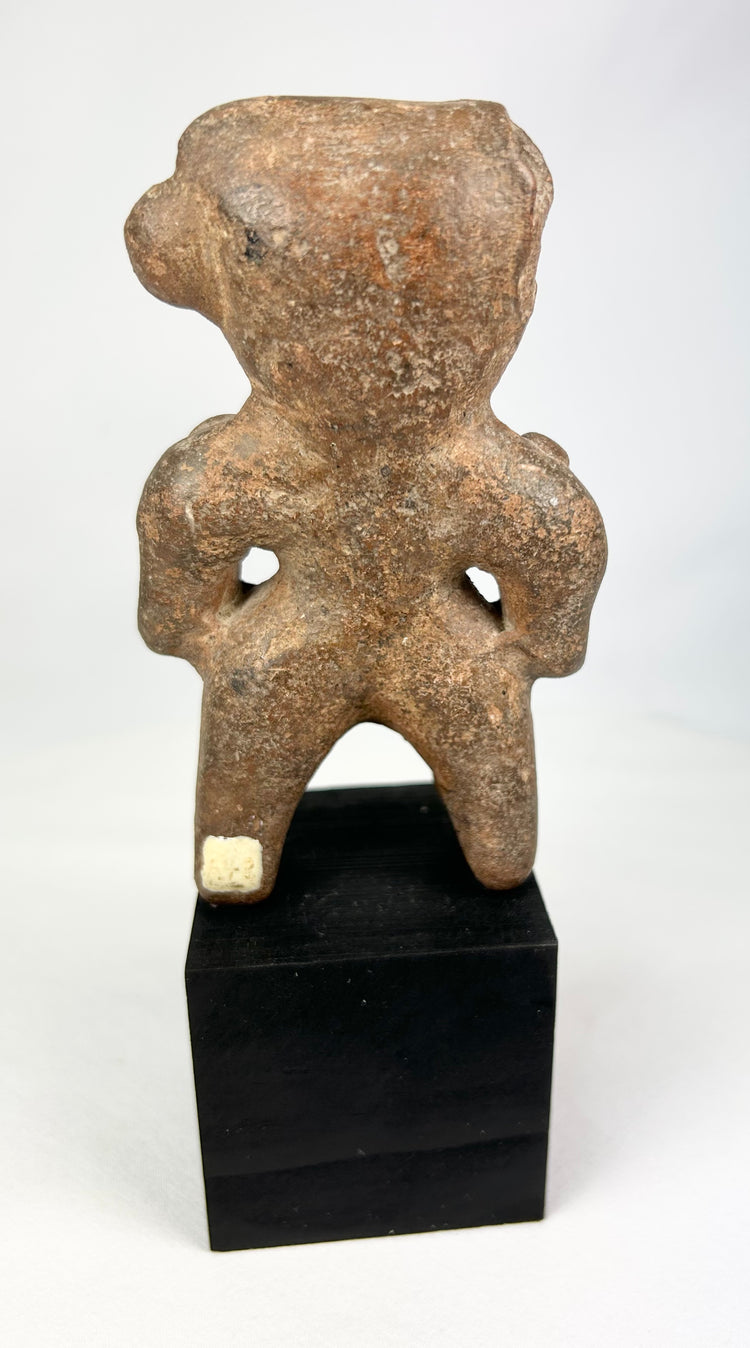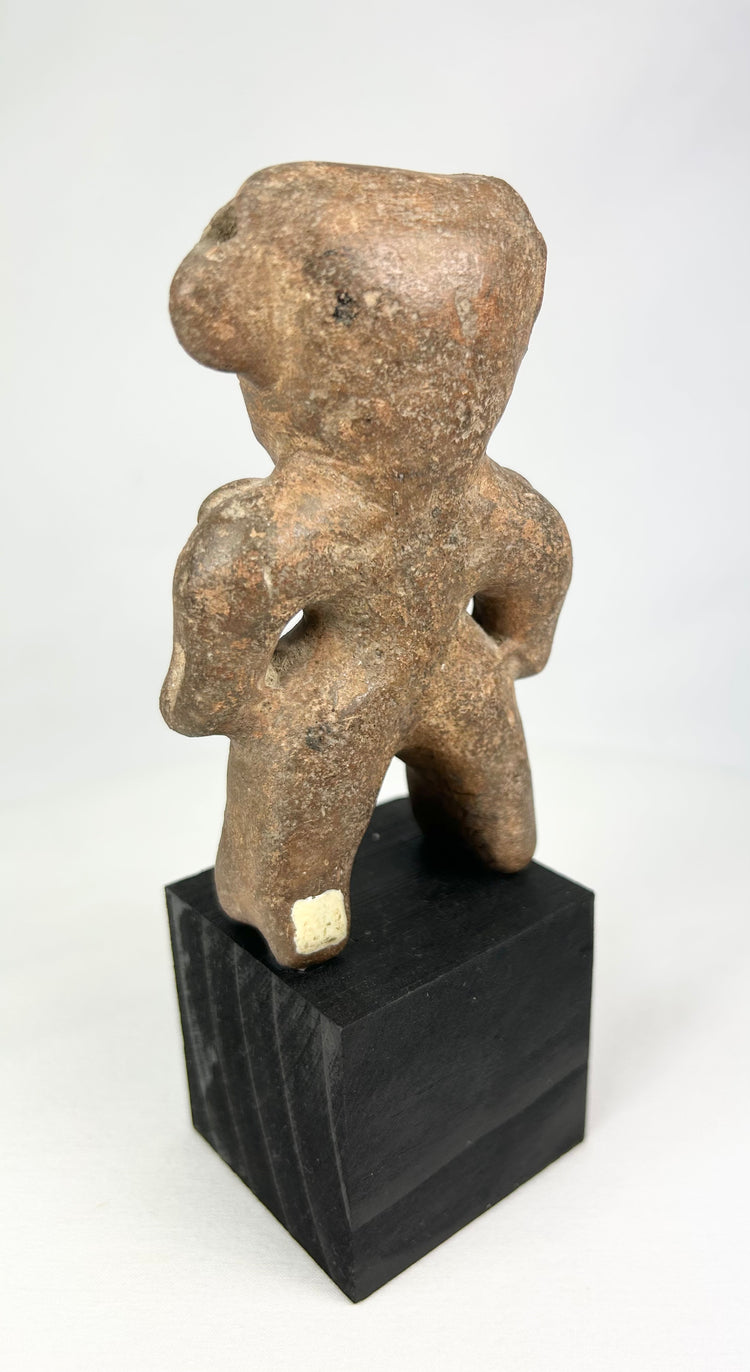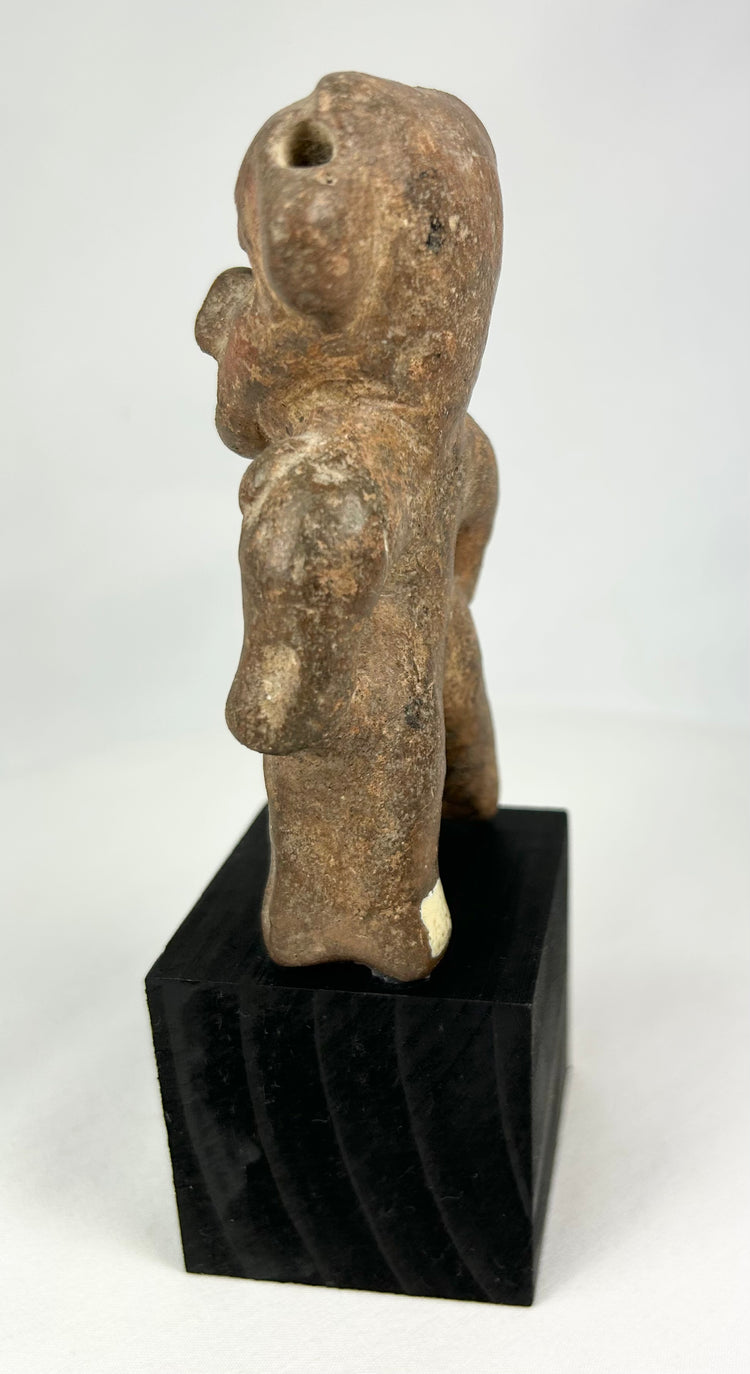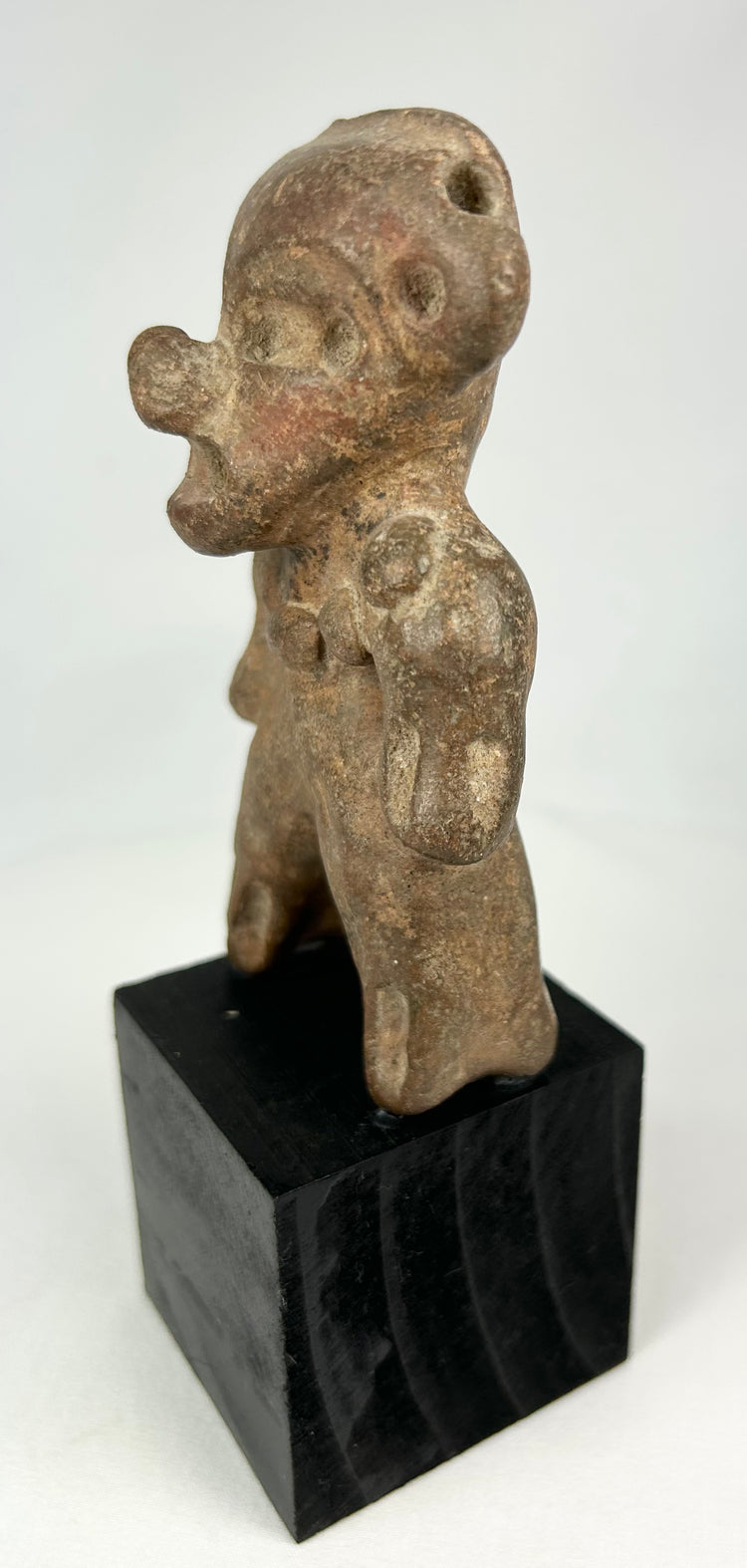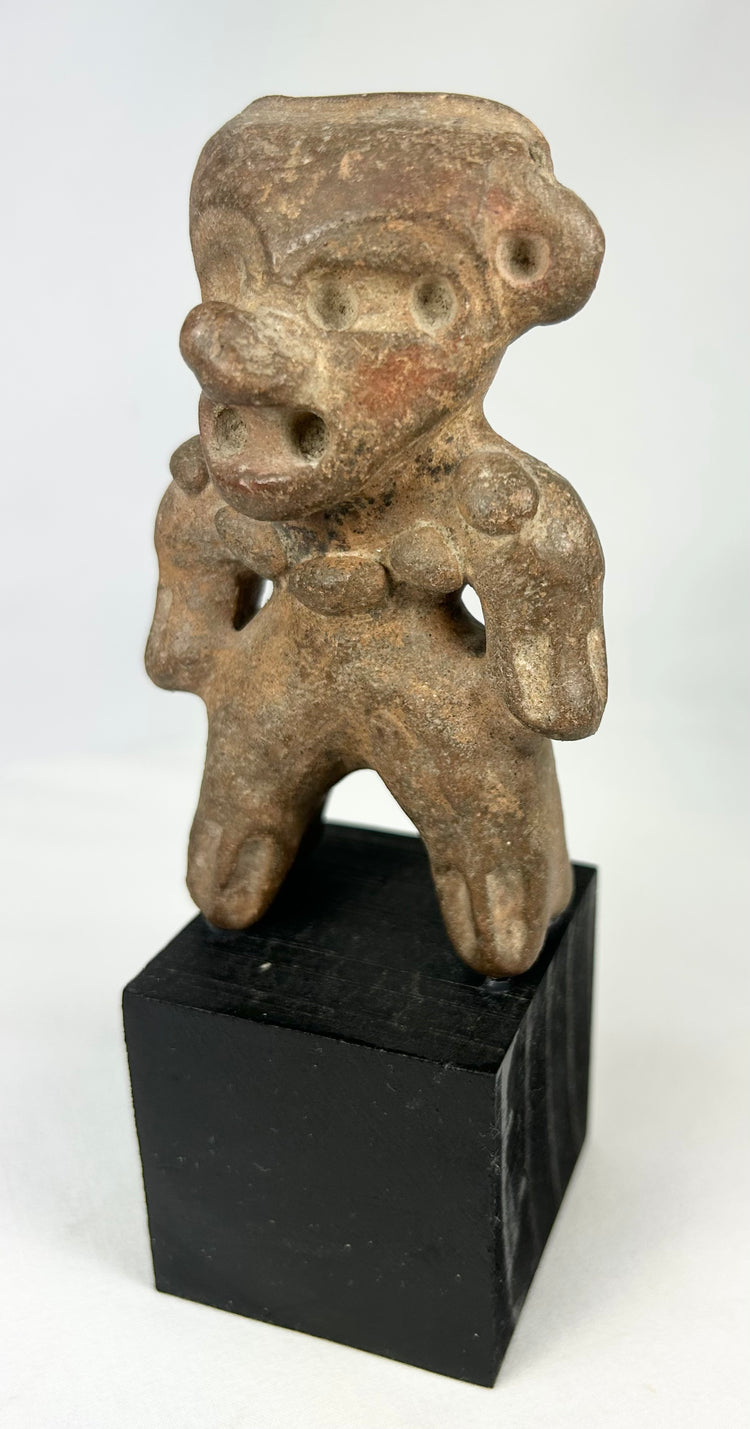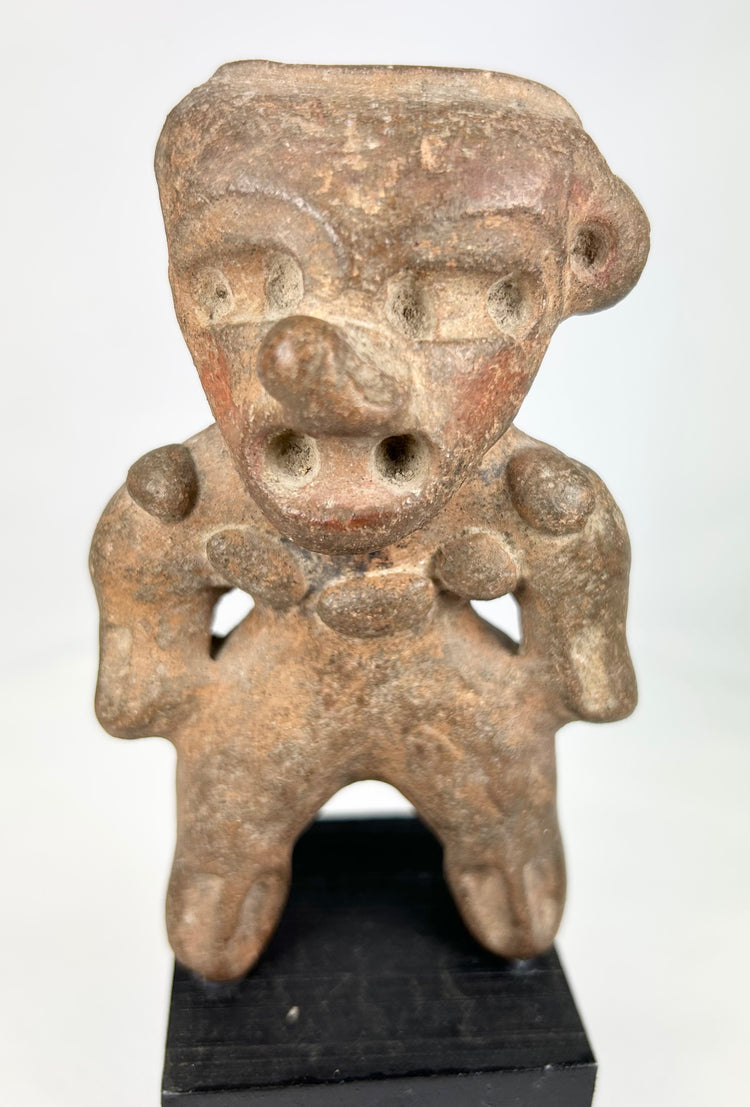Pre-Columbian Ritual Figure | Hand-Modeled Clay Sculpture | Mounted Display | Circa 300 BCE–500 CE
Description
More
Less
Historical Context & Origin
Region: West Mexico (Nayarit, Colima, or Jalisco)
Material: Hand-modeled terracotta
Period: Pre-Columbian, circa 300 BCE – 500 CE
Description
This terracotta anthropomorphic figure exemplifies the bold, expressive style of West Mexican shaft-tomb sculpture. The figure stands in a wide stance with bent arms drawn to the chest, featuring a large stylized head, prominent facial expression, and pierced ears. The textured surface shows earthen deposits and weathering from centuries of burial, underscoring its authenticity and antiquity. Mounted on a modern black display base, it presents with strong cultural presence as both artifact and sculpture.
Features
- Hand-modeled terracotta standing figure
- Distinctive stylized face with pierced ears
- Wide stance and expressive proportions
- Earthen deposits and surface weathering from burial context
- Mounted on a custom display base for secure exhibition
Cultural Significance
Figures of this type were placed in shaft tombs as companions and protectors for the deceased, embodying fertility, lineage, and ancestral presence. They reflect the ritual and social traditions of ancient West Mexico, where funerary art served both spiritual and cultural functions. Today, these figures remain among the most recognizable and iconic forms of Pre-Columbian sculpture, highly valued for their symbolic meaning and enduring aesthetic.
Condition
Good archaeological condition. Stable overall with surface wear, minor losses, and encrustation consistent with age. Securely mounted for display.
Dimensions (approximate)
Height: 6.25 in
Width: 2 in
Depth: 2 in
Age
Circa 300 BCE – 500 CE
Description
Historical Context & Origin
Region: West Mexico (Nayarit, Colima, or Jalisco)
Material: Hand-modeled terracotta
Period: Pre-Columbian, circa 300 BCE – 500 CE
Description
This terracotta anthropomorphic figure exemplifies the bold, expressive style of West Mexican shaft-tomb sculpture. The figure stands in a wide stance with bent arms drawn to the chest, featuring a large stylized head, prominent facial expression, and pierced ears. The textured surface shows earthen deposits and weathering from centuries of burial, underscoring its authenticity and antiquity. Mounted on a modern black display base, it presents with strong cultural presence as both artifact and sculpture.
Features
- Hand-modeled terracotta standing figure
- Distinctive stylized face with pierced ears
- Wide stance and expressive proportions
- Earthen deposits and surface weathering from burial context
- Mounted on a custom display base for secure exhibition
Cultural Significance
Figures of this type were placed in shaft tombs as companions and protectors for the deceased, embodying fertility, lineage, and ancestral presence. They reflect the ritual and social traditions of ancient West Mexico, where funerary art served both spiritual and cultural functions. Today, these figures remain among the most recognizable and iconic forms of Pre-Columbian sculpture, highly valued for their symbolic meaning and enduring aesthetic.
Condition
Good archaeological condition. Stable overall with surface wear, minor losses, and encrustation consistent with age. Securely mounted for display.
Dimensions (approximate)
Height: 6.25 in
Width: 2 in
Depth: 2 in
Age
Circa 300 BCE – 500 CE
You May Also Like

